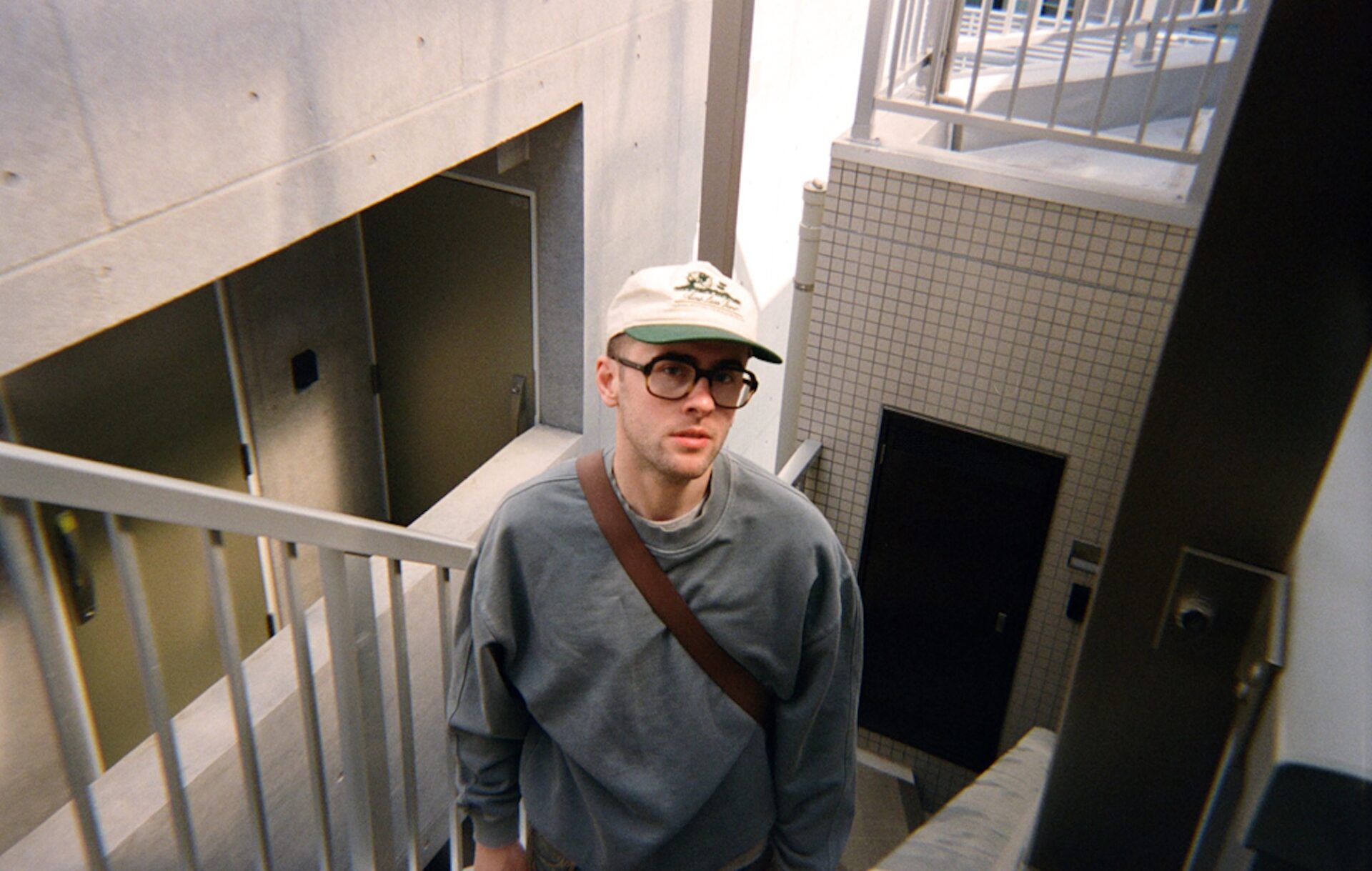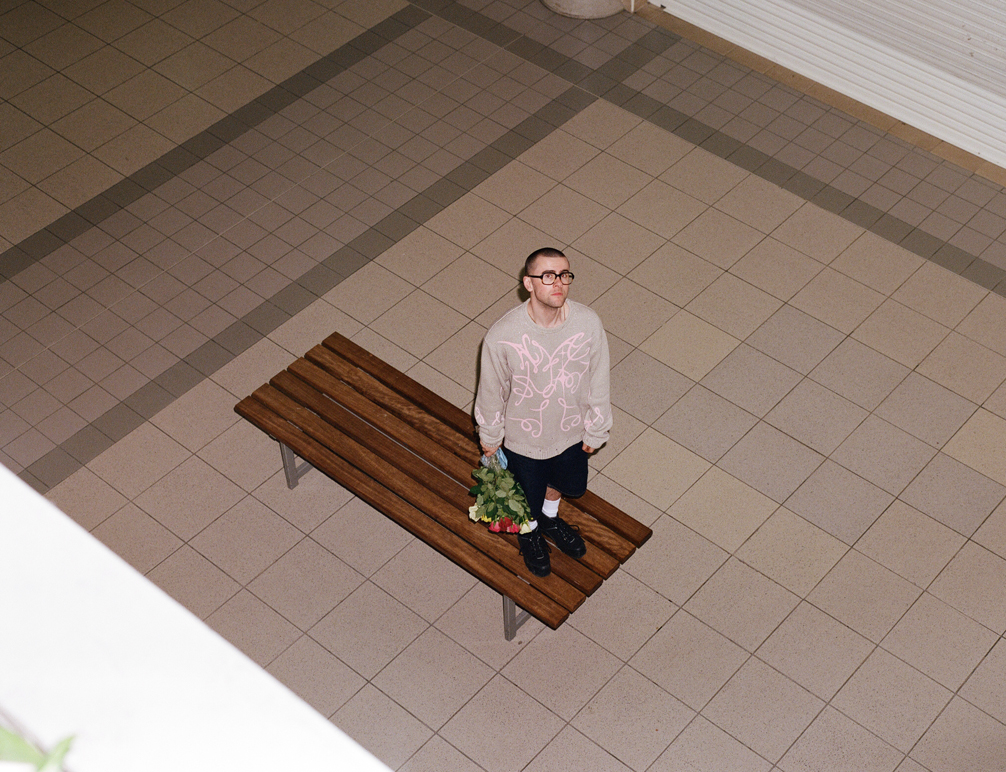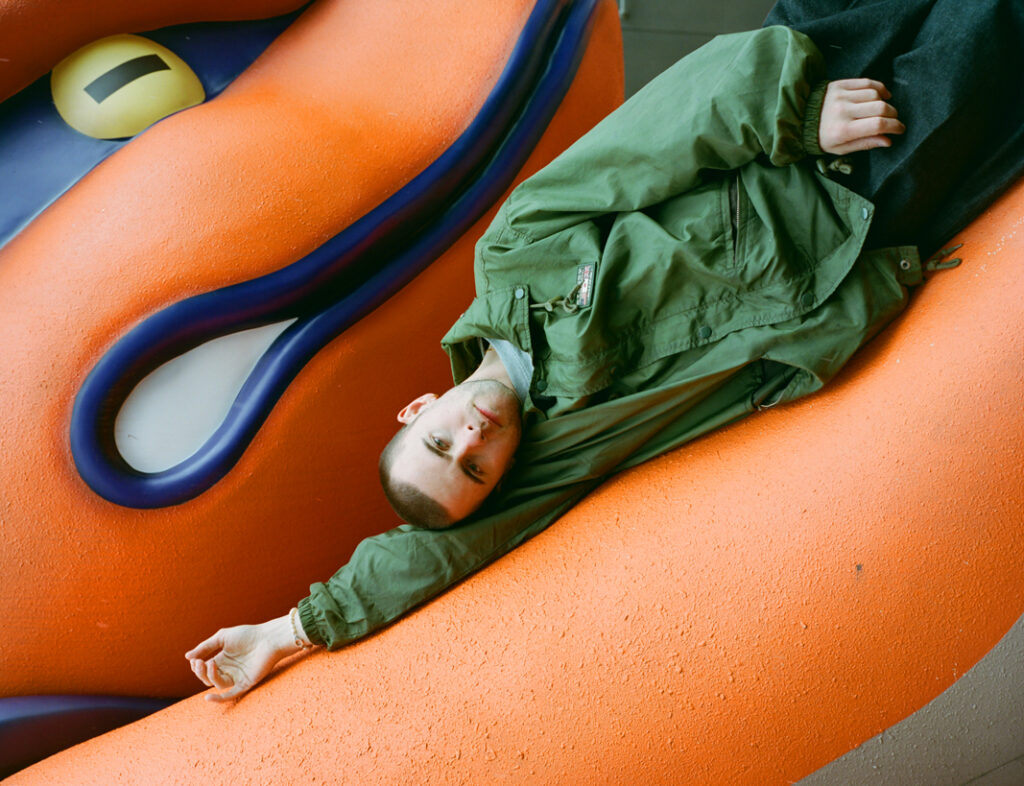life goes on: hard life on coming back from lawsuits and self-doubt
A high-profile lawsuit was the first threat to the future of the band formerly known as easy life. As front-man Murray Matravers tells us, he almost got in his own way too, before third album ‘onion’ gave him a fresh start

On 13 October 2023, the band formerly known as easy life played their final show, at London’s KOKO.
Less than two weeks previously, they had publicly announced that they were being sued by easyGroup, the brand owner of easyJet airlines. The band swiftly declared defeat in the legal battle and scrabbled to arrange final shows in their hometown of Leicester and adopted base of London before their deadline to cease trading under their name. “Sadly, it seems that justice is only available to those who can afford it,” the band told fans at the time.
At the final show (that date on the 13th was also a Friday, of course), a balance of righteous anger from fans and conflicted emotions from the band made for the most unique of farewell gigs. Chants were fired out from the crowd, with the band legally gagged from giving any response. They exited stage left, the mood half celebratory and half defeated, the band totally exhausted.
“I don’t even know if I was in the room,” frontman Murray Matravers reflects today of that night. “Normally, when you’re on tour, a certain show or certain city gives you a vibe, and your feelings assimilate. At that gig, everyone in the band was feeling completely differently. We’d had a billion Zoom calls with a billion lawyers, been totally blasted and then been told, ‘Now you’re playing the last show to all your diehard fans.”
The show “was for the fans”, Matravers says. “If I’m being really candid, I would have rather not done it. It was already really intense, and then to stand on the stage and be like…” He pauses and shrugs. “It was vulnerable, man.”
Highlights of the previous five years included playing Glastonbury’s Pyramid Stage and London’s Alexandra Palace. The band cultivated a rapturous fanbase and millions upon millions of streams through wry and candid lyrics and beats that straddled pop and hip-hop, alongside collaborations with Arlo Parks, Finneas and Brockhampton’s Kevin Abstract. Their second album, 2022’s MAYBE IN ANOTHER LIFE…, charted at number two, the same spot as the previous year’s debut album, life’s a beach.
Without the financial backing to take the legal case to court — the band members were liable as individuals as easy life wasn’t registered as a limited company — their half-decade of becoming a special and cherished new band suddenly looked to be without a future.
“We’ll be back,” Matravers told the crowd that night in Camden, but — for reasons not entirely related to a budget airline — it very nearly didn’t happen.

In the months following the show at KOKO, Matravers’ diary had totally cleared, with all touring plans suddenly shelved. Two of his bandmates took up their old jobs as electricians, with one jetting off to Australia to travel. Bassist Sam Hewitt left the band.
Matravers spent his time in the studio in London every single day, making album upon albums’ worth of songs before half-heartedly taking them batch by batch to his label, Island Records. “They knew, and I knew, and everyone in the room knew that it wasn’t really that good,” he reflects now. “At that point, I was just trying to tick a box and hand in my album so I could move through my contract. If we’re not being so capitalistic about it, I was also just trying to make something, but I just couldn’t, man. It was absolutely killing me.”
Hundreds of songs were written, all receiving the same reaction from the label and from Matravers himself in his heart of hearts. After one listening session and subsequent rejection too many, he quit. “I actually just broke down in tears and cried in front of my team,” he remembers.
“You don’t really deal with these things in isolation — they just come at you in all directions,” Matravers reflects of what caused his crisis of confidence. At the same time as the lawsuit, he was exiting a long-term relationship and experiencing panic attacks so severe that he didn’t leave the house for months. “I was overwhelmed, man,” he says now. “We’d done well to not be in the public eye so much. I’m a singer of a band, but I can walk down the street anywhere in the world and no one knows who I am. All of a sudden, just for a very short amount of time, people were fucking everywhere. It was just insane. We were in the tabloids, on BBC News. I mean, what the fuck, you know? Things just got really out of hand.”
After the lawsuit was settled out of court, he and his bandmates felt a void after years of writing, touring and packed schedules. “I was under the impression that this would yield a lot of creativity, and I would want to write about it, but actually I was just fucking exhausted,” Matravers recalls. With no plans and seemingly no future as a recording artist, Matravers booked a one-way plane ticket to Tokyo, a city he had fallen in love with when touring around the band’s debut album.
There, he reconnected with Taka Perry, the Japanese-Australian producer he had met through local R&B artist Sirup. At Perry’s studio, named Onion, the pair ravenously and almost accidentally made the revelatory, improbable, minor miracle of his new album under the name hard life.

Though Matravers describes his trip to Tokyo as “running away from my problems” — his therapist told him the same — he ended the trip with a deeply vulnerable and artistically gorgeous third album. onion, named after the Tokyo studio, sees the vocalist confronting the whirlwind of personal and professional turmoil with admirable transparency. “It was easy in my twenties, now I gotta lawyer up” goes opening track ‘tears’, released last year to launch the band’s return as hard life, while ‘OGRE’ sees him dissecting his breakup.
“I just had so much to say and so much I wanted to get down,” he says. “I was so fucking sad, man. I was so sad. Lost and lonely and devastated. I’m not trying to get into that place again to make another album, but those set of emotions made this album, and they’re there, and they’re really raw.”
Every day he’d turn up to the studio, often nursing a significant hangover, and “just cry all the fucking time” with Perry. In him, Matravers says he’s found a kindred spirit, someone he connects with emotionally and who is also able to keep up with his frantic, scattergun approach to writing in the studio. “I have a tendency to be very insecure and very self-critical,” he says, “so if a song’s taking me three days to make, by the third day, I think it’s shit, and I won’t finish it. With Taka, we make a song in genuinely, sometimes, an hour. It captures the essence of the idea in its purest form, before anyone’s had the chance to be like, ‘Is that idea good?’”
This immediacy — as well as Perry’s distinctive production style, favouring warm and fuzzy sounds — gives onion its charm and power. ‘tele9raph hill’ sees Matravers discuss his in-tensive therapy sessions, the only constant in his diary across this turbulent period, while ‘are you sti11 watching?’ is an intimate and difficult conversation between him and Perry. “I think you need to sort some shit out,” the latter tells his friend on a recorded phone call.
Most striking, though, is the album’s centrepiece, ‘proximity effect’. On this song, one of the record’s most urgent tracks, Matravers discusses his despair at Hewitt’s departure from the band. He remembers his friend’s care and love when Matravers was “on the airport floor listening to Bon Iver,” his preferred music for tempering panic attacks. Soon after, things get less peaceful: “Are we playing Vodafone dodgeball? / What’s up with the unfollow, huh?” he sings, then seemingly dropping a remarkable bombshell but hoping for “no turbulence when the fans find out you now fly for [bleep]Jet”.
“That song makes me nervous, but I think it should,” Matravers says. “I’m not trying to just put really safe music out all the time.” Also included in this “raw monologue” is an apology to fans for the time he was carried off stage in Glasgow after downing whisky. “I was just an idiot, man,” he says of the episode.
The only song not written in Tokyo, ‘end credits’, snuck through as the lone track Matravers was satisfied with from the earlier period back in London. “If you think you’ve been listening to my best work, you’ll know it when you hear it,” he sings, initially planning to release the song as both the first and last hard life song before heading off into the sunset.
A few days before leaving Onion, Matravers penned the track ‘pilot’, a premonition of his imminent despair upon touching down on the tarmac in London. “I’m in freefall, a lot of gravity to please a lot of people,” he sings over stacks of harmonies, begging to never land.
Later that week, he did land at Heathrow with the finished album, artwork and track list in his pocket. It was as shit an experience as he had imagined, so he immediately booked a flight back to Tokyo, against his therapist’s advice. He and Perry have since written more together at Onion, in Bali and in Mexico.

Though Matravers walked into his label’s offices with his tail between his legs countless times in the previous 18 months to have new music picked apart, there was one listening party he was most afraid of. In the time between trips to Tokyo, he gathered the band back in their hometown of Leicester to play them the album, one that lays bare the anguish he had been living through.
Plenty more tears followed from all involved — “Everyone loved it but said, ‘Fucking hell, that’s raw!’” — before decamping for a curry. onion will be released in July, and later this year, the band will hit the road together as hard life for the first time.
While it’s tempting to wrap the story up in a bow as one of redemption and healing for Matravers, he is strong on the narrative being nowhere near as clean or linear as that. “In some ways, I’m very fucking lonely and very lost now too, but that’s OK,” he says. “I’m not unique in that. I loved the experience of making the album and it definitely helped with my healing, but I think I surround myself with so many people and so much work, and I can keep running off to Tokyo. If I’m being really honest with myself, I don’t know if I actually sat long enough to figure out if I’m OK with it all.”
It’s the acceptance of this internal conflict and the inevitable ups and downs that define onion and the first era of hard life. “I just need to feel something deeply,” he says. “Whether it’s deep happiness, joy, or whatever the feeling is, it works as long as it’s moving me enough to want to sing about it. It has to be big.”
He adds: “If you’re able to sit and accept that most of the time things are pretty shit, you’re probably quite safe. If you’re as pathetic as me, always crying, I reckon I’m all right, because at least I’m feeling it. It’s not trapped, you know? I’m letting it go. It’s passing through me.”
Taken from the June/July issue of Rolling Stone UK, out now. Order your copy here.
